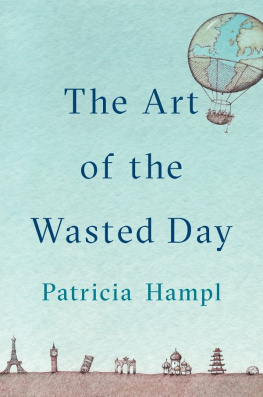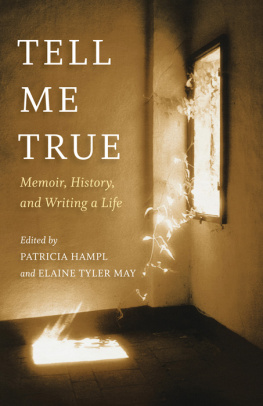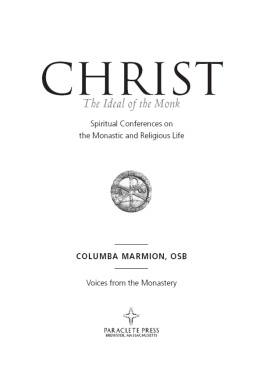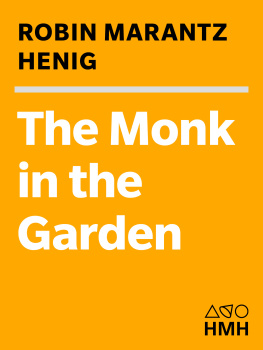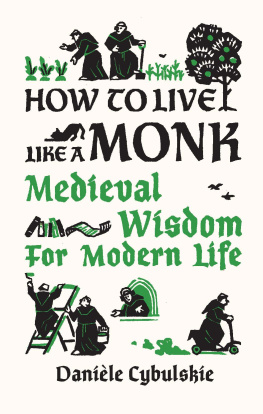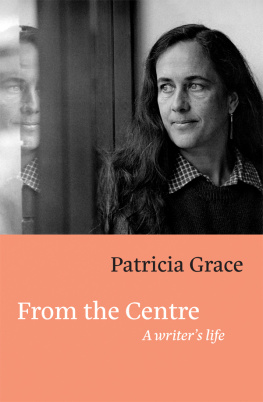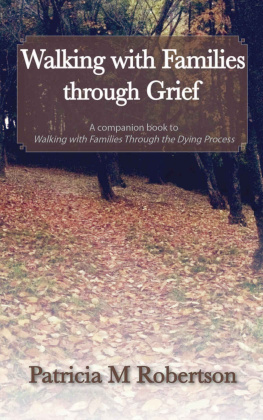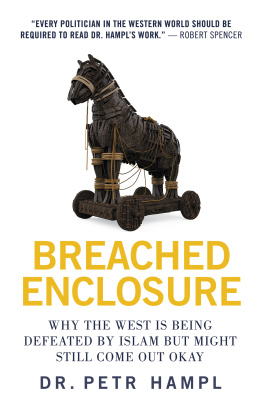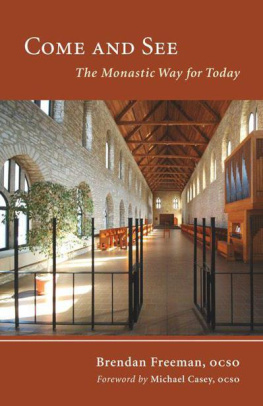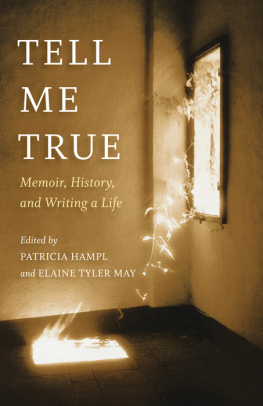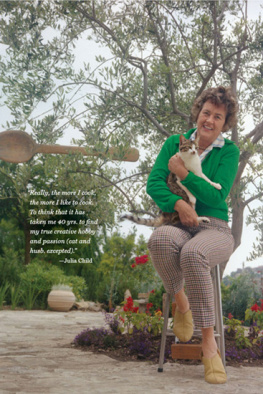Resort and Other Poems
Woman before an Aquarium
AS EDITOR
The St. Paul Stories of F. Scott Fitzgerald
Burning Bright: An Anthology of Sacred Poetry from Judaism, Christianity and Islam
Tell Me True: Memoir, History, and Writing a Life
co-edited with Elaine Tyler May
VIKING
An imprint of Penguin Random House LLC
375 Hudson Street
New York, New York 10014
penguin.com
Copyright 2018 by Patricia Hampl
Penguin supports copyright. Copyright fuels creativity, encourages diverse voices, promotes free speech, and creates a vibrant culture. Thank you for buying an authorized edition of this book and for complying with copyright laws by not reproducing, scanning, or distributing any part of it in any form without permission. You are supporting writers and allowing Penguin to continue to publish books for every reader.
Portions of this book first appeared in somewhat different form in The Sophisticated Traveler (published by The New York Times), Gulf Coast, Image, The Iowa Review, and Not Less Than Everything edited by Catherine Wolff (HarperCollins, 2013).
Lying in a Hammock at William Duffys Farm at Pine Island, Minnesota from Above the River: The Complete Poems and Selected Prose of James Wright. 1990 by Anne Wright. Published by Wesleyan University Press. Used by permission.
ISBN 9780525429647 (hardcover)
ISBN 9780698407497 (ebook)
Version_1
For Terrence
Prelude
Sometime around 1535, a good thirty years before the French Wars of Religion staked Catholic and Protestant heads on pikes around the Bordeaux countryside, in a gray stone castle deep in the wine country near Bergerac and Saint-milion, Pierre Montaigne, of a recently ennobled family, took the unprecedented step of hiring a lute player to awaken his child every morning. He was not an educated man, but he was an ardent father.
He followed a theory, probably picked up during his military years in Italy, his son later wrote, that it troubles the tender brains of children to wake them in the morning with a start, and to snatch them suddenly and violently from their sleep, in which they are plunged much more deeply than we are. The lute followed Pierre Montaignes boy, Michel, around the castleI was never without a man to do this for me.
Musiclyrical, wordlesswas the sound track of his childhood, the ground beat of his existence. An inducement to reverie.
Though he reports that his nature was always gentle and tractable, Michel Montaigne, celebrated in our time as the first modern man (and in English departments as the father of the personal essay, that most amateur literary form), confesses that he was in fact so sluggish, lax, and drowsy that he was a poor student when lessons required serious application. No one, he says, could tear me from my sloth, not even to make me play.
He was otherwise engagedfloating on the charmed notes of that childhood lute, no doubt. Lolling in the lap of leisure, adrift on fey melodies handed down from the Provenal lays of the Troubadours.
There was fugitive genius in this indolence. What I saw, I saw well, he says, cannily, much later, and beneath this inert appearance nourished bold ideas and opinions beyond my years.
Montaigne found his vocation early, companioned by music plucked on sheep gut as he went up and down the staircase of his fathers cold house, the same stony place where, years later, he would return from a life at court to sit alone in a room with words, to reveal his mind. Or really, to discover his mind.
He divined early the value of being sluggish, lax, drowsy...
He was not, as people now say, the first modern skeptic. He was the first modern daydreamer.
Contents
Timelessness
It beginsJuly afternoonunder the shade of the beechnut tree. The tree belongs to Mr. Kinney, the shade is ours. It must be 1953, because the Magnavox has just been delivered from McGowans TV and Appliance on Grand. Its not just for watching Lucy, my mother says, already mistrusting it. Youre seeing history. She points to the first smudged image she allows us to seethe Koreans and Chinese and Americans signing their names in a big Bibley book. Peace, she says, settling in with her cigs, the chipped cloisonn ashtray at hand.
An announcer drones from the glass box, murmuring names. One after another, men approach the heavy table to sign the book, each handing a fountain pen to the next. Mother taps her cig against the little Chinese ashtray, a gift, she tells me, from her uncle who was a U.S. Customs agent in San Francisco, half a world away from us in St. Paul. He got the ashtray when he broke an opium smuggling ring, she says proudly. He left the ashtray to her.
Did he steal it? I ask.
She looks startled. Not exactly, she says uncertainly, turning back to the television. This is going to take a long time, the men handing the pen back and forth. History, it turns out, is boring.
So I come out here, throw myself on the ground where the feathers of the beechnut sway and tilt. The green filigree patterns the sky, light filters my face. Its hard (the ground), yet also soft (the sponge of lawn). I shut my eyes. The Customs agent uncle, dead before I was born, is standing on a San Francisco dock. Does he have a gun? He has a badge, that I see. He lifts the blue cloisonn ashtray out of a burlap bag, and a Chinese man has his hands up in the air. He has a long pigtail I recognize from the black-and-red lacquer tray Mother brings up with soup and saltines when were sick in bed. There must be a gun somewhere, but where is it?
The scene fades, and a fresh image appears, our next-door neighbor Mr. Kinney, who presents himself in the dark for no reason. There he is, filling my mind.
Mr. Kinney is a widower. My mother says his wife has been dead forever. A hush of respect hovers over this fact. Because he is a widower and because he has money, he has a housekeeper. She doesnt like me. She wears a flowered apron trimmed with rickrack, and her designationhousekeepermakes her slightly sinister. Who has a housekeeper? Not normal people. Only Mr. Kinney, a widower without children but with money. He owns the coke factory near the zoo, a place of foreboding, heaps of blackened coal, acrid, smoking. Theyll have to clean that up one day, my father says.
Mr. Kinney sits in his glassed-in sunporch before dinner, sipping whiskey from a lowball glass. He drinks after dinner too, slowly, meditatively. He reads, his old smooth head glowing under the floor lamp. He has decided against a television set, he informs my father who has inquired if, with the windows open in summer, the sound of the Magnavox carries. Weve all noticed the nasty bark of the laugh track, nothing like real laughing.
Hes decided to stick with books, Mr. Kinney tells my father. He also listens to the radio as Halsey Hall calls the ball game in a voice juicy from a chewed cigar. You can see Mr. Kinney leaning back in his sloping armchair, eyes closed, following the game. Another person who shuts his eyes to see. In the summer you can hear the metallic

